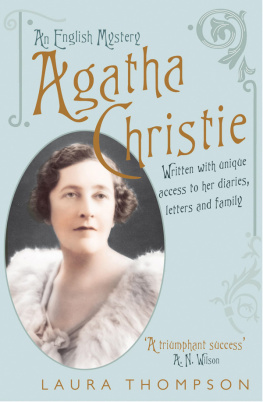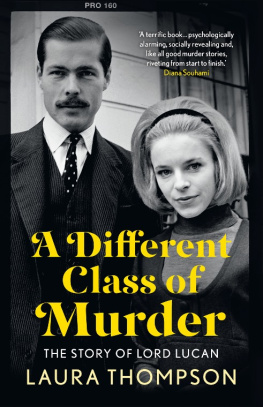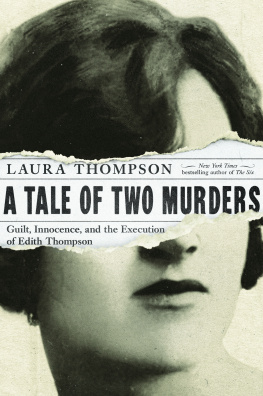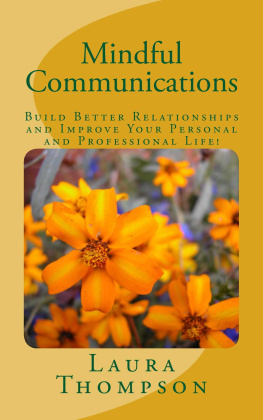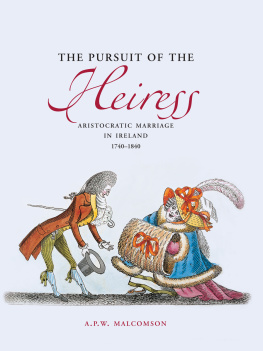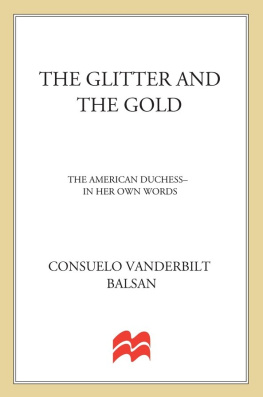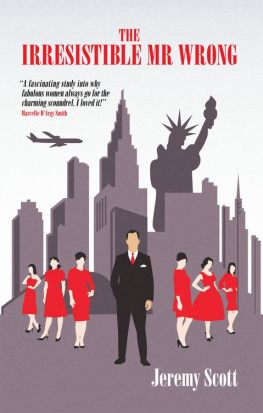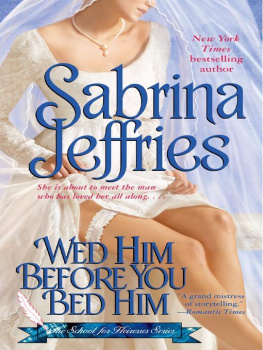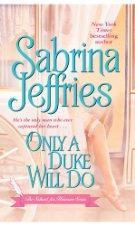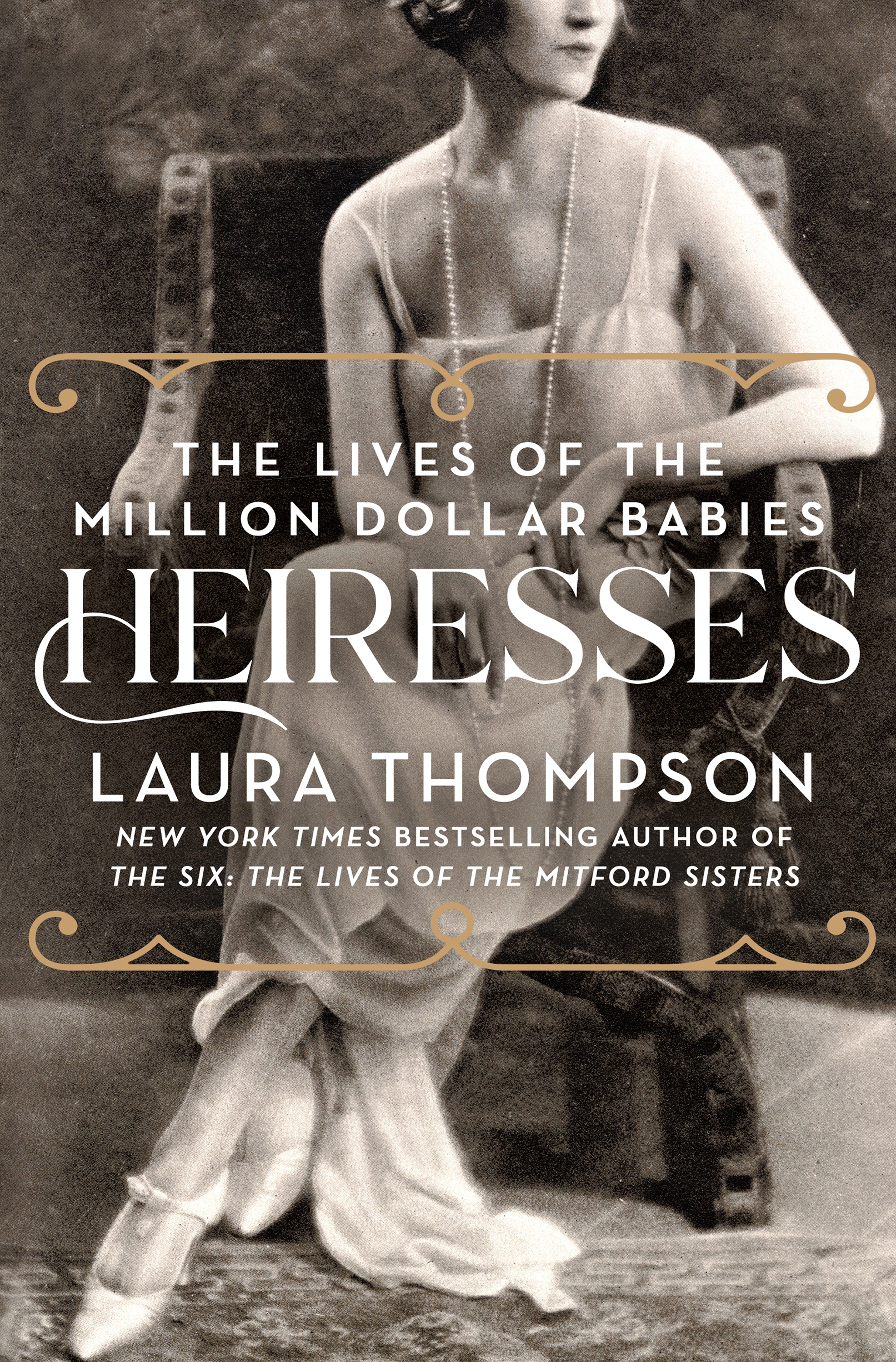Contents
Guide
Pagebreaks of the print version
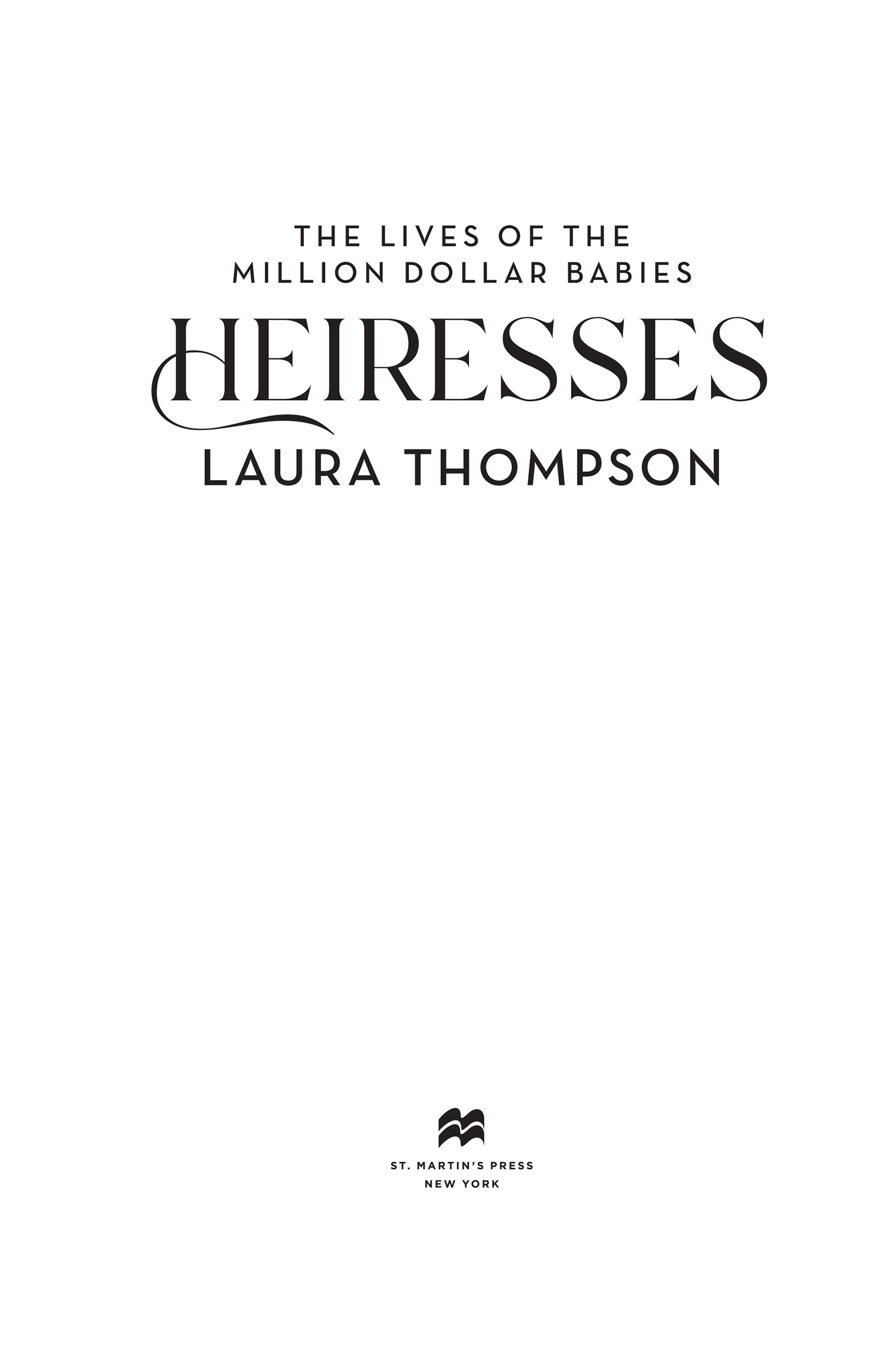
The author and publisher have provided this e-book to you for your personal use only. You may not make this e-book publicly available in any way. Copyright infringement is against the law. If you believe the copy of this e-book you are reading infringes on the authors copyright, please notify the publisher at: us.macmillanusa.com/piracy.
The rich are different from you and me.
Yes, they have more money.
Apocryphal conversation between F. Scott Fitzgerald and Ernest Hemingway
IN FICTION, IN general, the heiress does not have a very good time of it.
Take, for instance, the pallid little figure of Anne de Bourgh in Jane Austens 1813 novel, Pride and Prejudice. Anne is the only child of the widowed Lady Catherine de Bourgh, and as such will inherit the superb estate of Rosings Park. Meanwhile the Bennet girls at the center of the novelJane, Elizabeth, Kitty, Mary, and Lydiaare hamstrung by genteel poverty because their family estate, worth 2,000 a year, can only be passed on to a male heir. Lady Catherine states that she can see no occasion for entailing estates away from the female line; which might be seen as admirable proto-feminism, were it not for the arrogance of the speaker. From her, it sounds like mere self-validation andstrikinglylike a put-down of the novels heroine, Elizabeth Bennet.
For Lady Catherine is threatened by Elizabeth. Why should she be? Anne is an heiress: supremely marriageable, in an age when marriage was seen as a womans natural destiny. By rights she is the greatest prize among the group of young womenthe Bennet girls, Caroline Bingley, Charlotte Lucaswho fight to succeed in this polite and unyielding arena.
Yet Anne is the most insignificant of them all. Described as pale and sickly, she sits near-silent at the Rosings dinner table and is glimpsed like a ghost inside her carriage. There is no sense that her fortune makes her happy or blessed; in fact there is scarcely any sense of her at all.
By contrast, Elizabeth blooms. Her personality is the life force of the novel. She is physically at ease with herself, and her sense of humorI dearly love a laughis delicately anarchic. Most importantly, she has a sense of self-worth that no insult or reversal can touch. This worries Lady Catherine, for it suggests that her own scale of values is not the only one in town. Here is a girl without fortune, an anti-heiress as one might say, who simply refuses to countenance the idea that she should feel inferior on that account. Instead, and without in the least meaning to do so, Elizabeth suggests through her artless confidence that Anne de Bourgh is her inferior.
And indeed, when it comes to marriagethe means by which a young woman proved her worthElizabeth does triumph; thereby more than justifying Lady Catherines unease. The intention had been that Anne de Bourgh should marry her cousin, Darcy, whose Pemberley home is on the splendor level of Rosings. A union of two estates, therefore, rather than two individuals; wealth calling to wealth, as was perfectly normal practice. Elizabeth, however, is the rogue factor. Like Lady Catherine, Darcy feels threatened by her (who is this girl?) but he is also beguiled. His aunt, meanwhile, has forgotten that a man as rich as Darcy can marry whomsoever he chooses, and has absolutely no need of an heiress as terminally insipid as Anne.
For all its reputation as a love story, Pride and Prejudice is really a novel about money. Those who have itAnne, Darcy, his sister Georgiana, his friend Bingleyare set against those who do not; the haves represent a winning post that the have-nots seek to reach. For example Darcys friend Colonel Fitzwilliam, well born but without fortune, is attracted to Elizabeth but says to her: Younger sons cannot marry where they like, to which she blithely replies: Unless where they like women of fortune, which I think they very often do. That is a tease, but it is also the truth: Fitzwilliam is on the hunt, and his quarry cannot be Elizabeth.
As a man of honor he will not behave like the amoral Mr. Wickham, who attempts a shortcutone extremely familiar in Austens timeby plotting to elope with Georgiana Darcy. Meanwhile, Charlotte Lucas shackles herself to the barely tolerable Mr. Collins, which to her friend Elizabeth is scarcely less shocking. But Charlotte accepts that marriage is a preservative from want, and in doing so shows better sense than Elizabeth, who turns Mr. Collins down; a dangerous thing for a poor girl to do. Collins makes a very fair point when he says: Your portion is unhappily so small that it will in all likelihood undo the effects of your loveliness and amiable qualifications.
What stops his words from coming true is the fairy tale element of Pride and Prejudice; the fact that, in the end, romance conquers the finance-based narrative, Darcy decides that it is the poor girl or nobody, and Cinderella goes to a lifetime of Pemberley balls. Anne de Bourghbriefly presented as Darcys natural matedisappears almost completely from the readers consciousness to be remembered, just, as an etiolated presence trapped in a drawing room dominated by her appalling mother.
Her fate beyond the book is hard to imagine. Health permitting, she would probably have been married off, to a husband of whom her mother approved; as an heiress, she would not have lacked suitors. Yet precisely because she is an heiresspure and simpleit is impossible to think that she would have been wanted for any other reason. Poor, pale, undersized Anne de Bourgh: she seems weighed down by her inheritance, well-nigh obliterated by it. No clearer contrast is possible with Elizabeth Bennet, who represents freedom in a way that is somehow connected to her lack of money.
Elizabeth is loved not for what she has, but for what she is; she is loved, as the phrase has it, for herself. No wonder Pride and Prejudice has become so popular among the youre worth it generation. Indeed the lengths to which the wildly eligible Darcy goes to win Elizabethpaying off and putting up with her embarrassing relations, proposing for a second time despite a rejection that he can scarcely credithave an outlandishness worthy of Richard Curtis. Austens great literary gift solidifies the happy ever after, makes clear that it is also the culmination of a series of moral choices. Nevertheless I never read the book without thinking: my God, Elizabeth, would you have gotten this lucky in real life?
In fiction, however, the penniless heroinewhich means all of Jane Austens protagonists except Emma Wodehouse, who has 30,000is allowed to be in a fair fight with the heiress, her implicit enemy. She is given qualities that the heiress lacks because, in fiction, fortune alone cannot be allowed to carry the day. If it does, as when Marianne Dashwood loses her beloved Willoughby to a rich girl in Sense and Sensibility, this proves to be a blessing in disguise: Willoughby was not worth having.
Furthermore, as Austen makes clear, had Willoughby not been financially all to pieces he would have chosen Marianne every time. The woman whom he does marrySophia Grey, possessor of the enormous sum of 50,000is again a cipher, but a still more unappealing one than Anne de Bourgh. The reader is told that she is not handsome, that she is jealous as the devil. Unlike lovely passionate Marianne, she has nothing to offer beyond the fact that she is an heiress; therefore, any victory that she scores is a hollow one.


